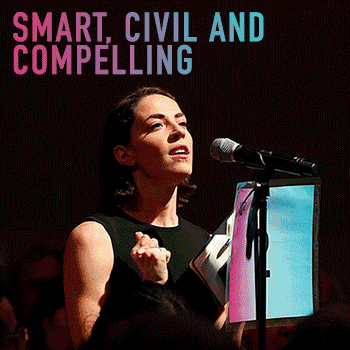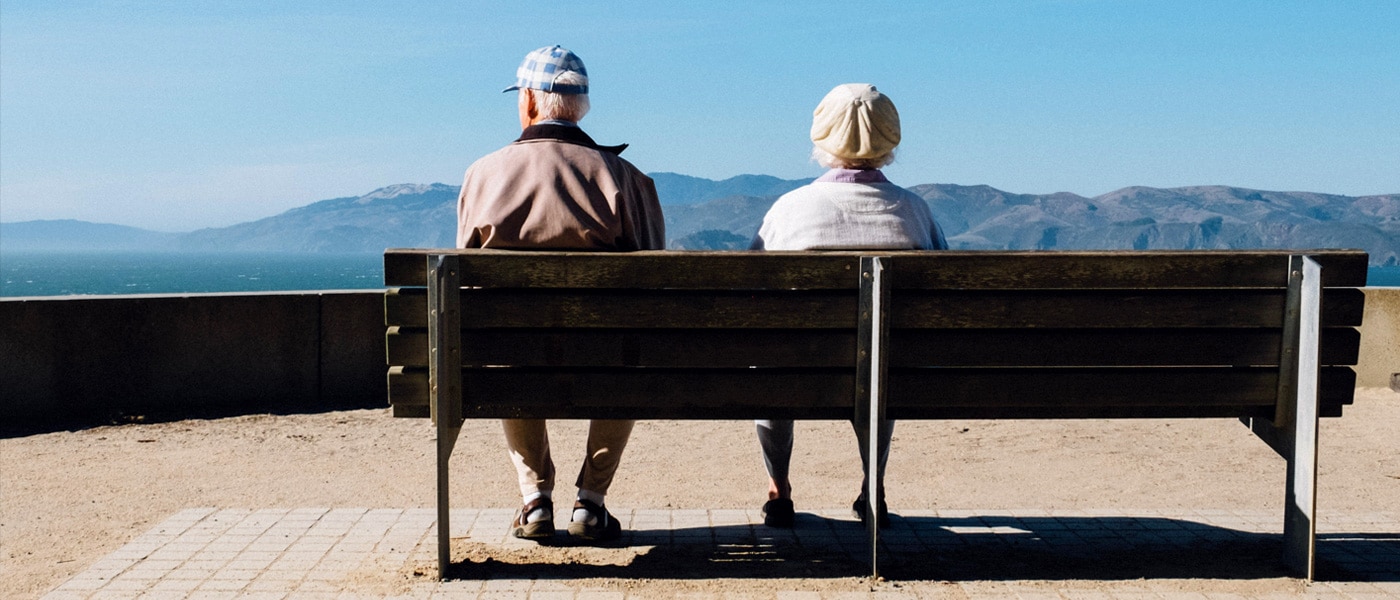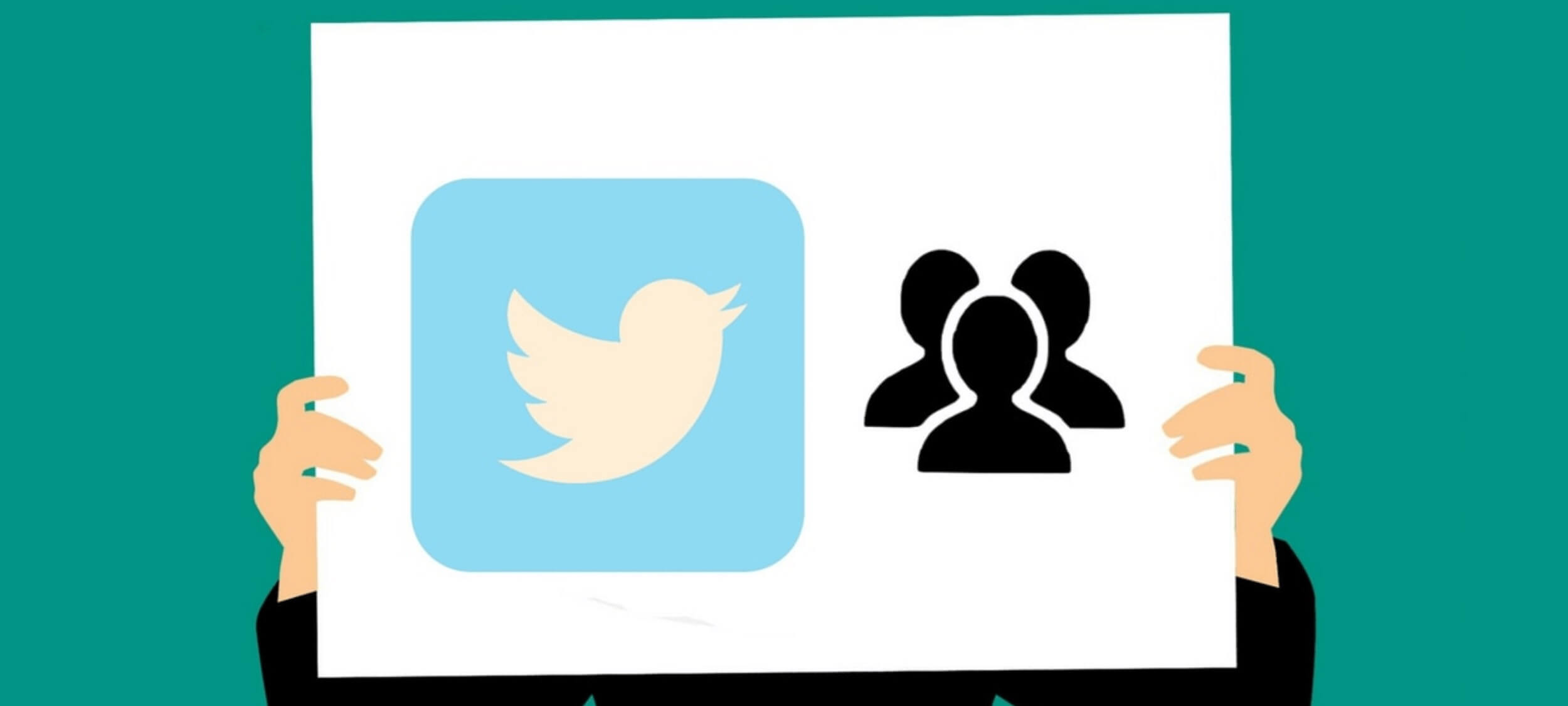How to pick a good friend

How to pick a good friend
Opinion + AnalysisHealth + WellbeingRelationships
BY Aisyah Shah Idil The Ethics Centre 17 JUL 2018
Fed up with fair weather friends? A bit of ethical reflection will help you figure out which friends to pick – and keep.
It takes very little to make a “friend”.
A bit of spark, some solid banter. A vulnerable confession or two. Sharing the same floor, class, or gym helps lower the stakes even more. This happy conversation: “You’re getting a coffee now? Me too!” Spells the chorus cheer of a budding friendship. Any more than that and phew – let’s not force something that’s meant to be easy!
But is that true? Is effort really the death knell? Stick around in any friendship, and you will find the coveted ease ebbing away. Illness, death, divorce, bankruptcy… Mother Time has a funny way of revealing the friends who will stick by you no matter what, and the friends who will leave at first pinch.
In a 2016 survey conducted by Lifeline with over 3100 respondents, 60 percent of Australians confessed to feeling lonely on a regular basis. A large portion of these people live with a spouse or partner. The stats show its quality we need, not quantity.
Shasta Nelson, author of Frientimacy, argues the loneliness many of us feel isn’t because we don’t know enough people. Instead, it’s because we don’t feel known, supported, and loved by the right few.
How do we find this right few? Ethical reflection can help.
Friendship values
When do you feel loved? And how do you show love?
These questions can help reveal our friendship ‘values’. Knowing which of these we prioritise is key to discerning which of our friendships are valuable and worth investing effort in. Do you feel most loved when you’re accepted unconditionally? When you’re having a good laugh? What about when your achievements are celebrated and encouraged? Or when your ideas are challenged in a lively debate? None of these are mutually exclusive but being clear about what you value makes it easier to decide if this friendship is one to prioritise.
You may think the second question redundant but knowing how we express love can help bring out the subconscious values that drive our behaviour. We each have patterns of love or dependency that are formed in childhood. Knowing what they are helps you be more aware of the ones you naturally tend to lean into, and if those are ones you want to cultivate. As much as we like to believe we naturally gravitate to what’s good for us, we might be more likely to gravitate to what’s familiar.
You might show love by being financially generous, hospitable, or a shoulder for someone to cry on. You might value having shared interests and vibrant conversations or being their emergency contact in a crisis. Maybe you show your love and comfort around someone by letting your hair down and complaining a lot. Hey, it happens.
How to create deeper friendships
Choosing the right types of people as friends can help us cultivate relationships based on shared values and character, not circumstance. And when we have them, let’s treat them well. Nelson’s three principles for deepening an already existing friendship are:
- Positivity: helping each other feel good. Think smiles, laughter, empathy, and validation.
- Consistency: a bank of expected behaviour that builds trust; the opposite of walking on eggshells around someone.
- Vulnerability: sharing the bad and the good.
A friend is one with whom we are willing to share, without fear of judgement, our truest self. It’s worth being picky about.
Next month, we’ll be talking about how to end a friendship – ethically. If you can’t wait that long, Ethi-call can help, our free helpline for life’s ethical struggles. Book your appointment here.
Ethics in your inbox.
Get the latest inspiration, intelligence, events & more.
By signing up you agree to our privacy policy
You might be interested in…
Opinion + Analysis
Health + Wellbeing, Relationships
Living well or comfortably waiting to die?
Opinion + Analysis
Business + Leadership, Health + Wellbeing
Is your workplace turning into a cult?
Opinion + Analysis
Health + Wellbeing, Relationships
Germaine Greer is wrong about trans women and she’s fuelling the patriarchy
Opinion + Analysis
Health + Wellbeing, Society + Culture
Why I had a vasectomy at 30
BY Aisyah Shah Idil
Aisyah Shah Idil is a writer with a background in experimental poetry. After completing an undergraduate degree in cultural studies, she travelled overseas to study human rights and theology. A former producer at The Ethics Centre, Aisyah is currently a digital content producer with the LMA.
BY The Ethics Centre
The Ethics Centre is a not-for-profit organisation developing innovative programs, services and experiences, designed to bring ethics to the centre of professional and personal life.
The five biggest myths of ethical fashion

The five biggest myths of ethical fashion
Opinion + AnalysisClimate + EnvironmentHealth + WellbeingSociety + Culture
BY The Ethics Centre 18 APR 2018
We all know the way we shop is unsustainable.
Australians are the second biggest consumers of textiles worldwide. We throw more than 500,000 tonnes of the stuff into landfill every day. We only wear our garments seven times before throwing them away and still buy an average of twenty seven kilograms of new clothing each year.
The ethical fashion movement promotes a cull of fast fashion’s massive social and environmental impact. But why aren’t more people engaging in it?
We spoke to Clara Vuletich about the five biggest myths of ethical fashion – and if they’re keeping people out.
1. Ethical fashion has to be exclusive
It used to be the case that shopping ethically meant visiting tiny, hole-in-the-wall boutiques, which were either aggressively minimalist or bursting with colours a Crayola pack would be shy to wear. But it’s becoming mainstream.
Vuletich says big brands like H&M and Country Road are engaging with the ethical space in ways unique to their breadth and industry relationships. Another brand, Uniqlo, has introduced a recycling drive for customers to return their secondhand clothes. Though these actions are often met with a sceptical “But it’s just PR” comment, Vuletich says they are a step in the right direction.
‘The people that work in this space aren’t monsters’, she says. ‘They aren’t all ego-driven. It’s much more nuanced than that.’ The relationship a big brand like H&M has developed over decades with their primary garment supplier in Shanghai (for example) isn’t insignificant. They know their names, their families, their lives.
2. Ethical fashion has to be vegan, natural and eco-friendly
Catch-all phrases like natural, eco-friendly, or yes, ethical, are usually a sign to look further, warns Vuletich. Cotton, one of the most prolific materials worldwide, almost always produces toxic effluent from pesticides and dyes, and relies on infamously exploitative farming environments.
According to Levi’s, one denim pair of jeans is made with 2,600 litres of water. Polyester, a synthetic material derived from plastic, is far more easily recycled and reused than any other natural material.
But polyester can take up to 200 years to decompose. In landfill, wool creates methane gas. So which is better for the environment? The complexity of textile production makes it impossible to rank fabrics on a hierarchy of environmental sustainability.
3. Ethical fashion has to be local
Cutting down transport emissions does matter. But the fact is, unless we start growing cotton farms and erecting textile mills in our local communities, the creation of any piece of clothing will have some international process to it.
A ‘Made in Australia’ tag won’t always be the guarantor of quality and safe working conditions. Neither does a ‘Made in China’ tag mean poor workmanship and sweatshops (anymore).
For the quality, bulk, and turnaround the Australian fashion market wants, whether ethical or not, international processes are not an unfortunate by-product – they are crucial to its existence. Fabric manufacturing is one of the quickest ways for communities and countries to rise out of poverty and the solution isn’t to pull the rug out from under them.
4. Ethical fashion has to be expensive
If you’re looking for a new piece of clothing where every worker in the supply chain has been paid well, it stands to reason the final product will be expensive. If you don’t have money to burn, there are other clothing choices you can make that won’t exploit the earth and human race.
Vuletich is a big fan of secondhand shopping – think Salvos, Vinnies, U-Turn, Swop, Red Cross, Gumtree… Secondhand goods they may be, but that’s not a codeword for cheap, shoddy, or badly made. Instead of a fast fashion giant, your purchase funds a local charity, business, or market stall owner.
No extra resources were extracted for anyone to get that piece of clothing to you, nor was anyone enslaved to sew your new threads. It’s likely a local near the shop donated it, so transport emissions are low, and you’re also keeping something out of landfill.
5. Ethical fashion leads to social impact
Vuletich is wary of making huge claims. Slogans like ethical fashion will save the world are just that – slogans. The effectiveness of campaigns like the 1-for-1 business model have been thoroughly debunked, and it’s doubtful buying a pair of fair trade sandals will do as much good as a country changing their labour laws. But will it have some impact? She says yes.
For someone not in the industry, the complexity is overwhelming. Trying to track the supply chain of a polyester dress might take you to one factory in Turkey, while following the history of a pair of denim jeans will take you to China – if the clothing company even knows where their raw materials are sourced. The sheer scale of garment manufacturing is the main reason ethical fashion is intimidating, and that’s not taking into account consumer needs.
Fashion is personal. People want different things from their clothing – they might want it to be free of animal products, or for it to be breathable and comfortable, or for it to be made with as little impact to local communities as possible. They might want it to make them stand out, or to make them blend in.
They might want it to be easy and careless. But with the growing social, political and environmental consciousness around fashion, it’s difficult to stay unaware. Maybe it won’t change the world, but rest assured that the choices you make as a consumer do add up.
Ethics in your inbox.
Get the latest inspiration, intelligence, events & more.
By signing up you agree to our privacy policy
You might be interested in…
Opinion + Analysis
Health + Wellbeing, Society + Culture
Does ethical porn exist?
Opinion + Analysis
Health + Wellbeing, Relationships
Rationing life: COVID-19 triage and end of life care
Opinion + Analysis
Politics + Human Rights, Society + Culture
Play the ball, not the person: After Bondi and the ethics of free speech
Opinion + Analysis
Health + Wellbeing, Relationships, Science + Technology
Philosophically thinking through COVID-19
BY The Ethics Centre
The Ethics Centre is a not-for-profit organisation developing innovative programs, services and experiences, designed to bring ethics to the centre of professional and personal life.
When do we dumb down smart tech?
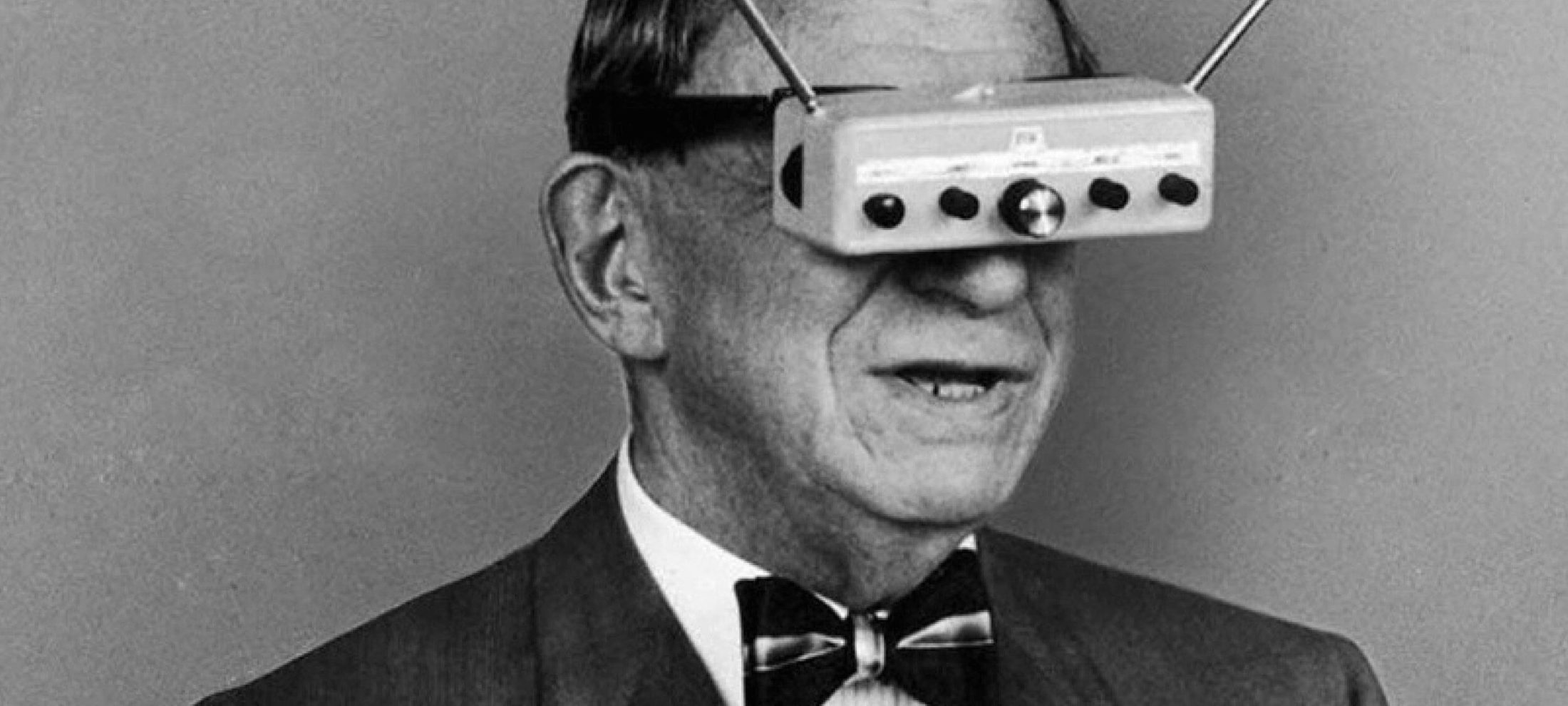
When do we dumb down smart tech?
Opinion + AnalysisHealth + WellbeingRelationshipsScience + Technology
BY Aisyah Shah Idil The Ethics Centre 19 MAR 2018
If smart tech isn’t going anywhere, its ethical tensions aren’t either. Aisyah Shah Idil asks if our pleasantly tactile gadgets are taking more than they give.
When we call a device ‘smart’, we mean that it can learn, adapt to human behaviour, make decisions independently, and communicate wirelessly with other devices.
In practice, this can look like a smart lock that lets you know when your front door is left ajar. Or the Roomba, a robot vacuum that you can ask to clean your house before you leave work. The Ring makes it possible for you to pay your restaurant bill with the flick of a finger, while the SmartSleep headband whispers sweet white noise as you drift off to sleep.
Smart tech, with all its bells and whistles, hints at seamless integration into our lives. But the highest peaks have the dizziest falls. If its main good is convenience, what is the currency we offer for it?
The capacity for work to create meaning is well known. Compare a trip to the supermarket to buy bread to the labour of making it in your own kitchen. Let’s say they are materially identical in taste, texture, smell, and nutrient value. Most would agree that baking it at home – measuring every ingredient, kneading dough, waiting for it to rise, finally smelling it bake in your oven – is more meaningful and rewarding. In other words, it includes more opportunities for resonance within the labourer.
Whether the resonance takes the form of nostalgia, pride, meditation, community, physical dexterity, or willpower is minor. The point is, it’s sacrificed for convenience.
This isn’t ‘wrong’. Smart technologies have created new ways of living that are exciting, clumsy, and sometimes troubling in their execution. But when you recognise that these sacrifices exist, you can decide where the line is drawn.
Consider the Apple Watch’s Activity App. It tracks and visualises all the ways people move throughout the day. It shows three circles that progressively change colour the more the wearer moves. The goal is to close the rings each day, and you do it by being active. It’s like a game and the app motivates and rewards you.
Advocates highlight its capacity to ‘nudge’ users towards healthier behaviours. And if that aligns with your goals, you might be very happy for it to do so. But would you be concerned if it affected the premiums your health insurance charged you?
As a tool, smart tech’s utility value ends when it threatens human agency. Its greatest service to humanity should include the capacity to switch off its independence. To ‘dumb’ itself down. In this way, it can reduce itself to its simplest components – a way to tell the time, a switch to turn on a light, a button to turn on the television.
Because the smartest technologies are ones that preserve our agency – not undermine it.
Ethics in your inbox.
Get the latest inspiration, intelligence, events & more.
By signing up you agree to our privacy policy
You might be interested in…
Opinion + Analysis
Health + Wellbeing, Relationships
Seven COVID-friendly activities to slow the stress response
Opinion + Analysis
Relationships
Who are you? Why identity matters to ethics
Opinion + Analysis
Science + Technology
The rise of Artificial Intelligence and its impact on our future
Opinion + Analysis
Climate + Environment, Politics + Human Rights, Relationships
A burning question about the bushfires
BY Aisyah Shah Idil
Aisyah Shah Idil is a writer with a background in experimental poetry. After completing an undergraduate degree in cultural studies, she travelled overseas to study human rights and theology. A former producer at The Ethics Centre, Aisyah is currently a digital content producer with the LMA.
BY The Ethics Centre
The Ethics Centre is a not-for-profit organisation developing innovative programs, services and experiences, designed to bring ethics to the centre of professional and personal life.
Democracy is hidden in the data

Democratic values like free speech, equality and representative government are played like trump cards in public debates. It seems if you can label something an ‘attack on democracy’, you’ve thrown the winning punch (even it is an illogical argument).
But what’s so great about democracy? We assume it’s good but on what basis? The merits probably depend on your perspective on ethics. If you prioritise duty and rules you will respect democracy’s checks and balances. If you believe ethics is about virtue, the faith democracy places in people’s good character might strike a chord.
What if you believe ethics is about making sure good consequences outweigh bad ones? Then you’d want to know what the actual effects of democracy are on people. Do they make life better for their citizens or not?
As a service to our consequentialist readers, we decided to look for some data to find out.
What the data says
Consequentialism is the ethical theory concerned with maximising happiness and minimising suffering. For consequentialists to support democracy, they’d need to know if it makes people happy. This is a bit tricky because pinning a definition onto happiness isn’t easy.
Philosopher Peter Singer thinks there are two ways to describe happiness: “as the surplus of pleasure over pain experienced over a lifetime, or as the degree to which we are satisfied with our lives”.
We decided to cross reference a few global studies to see if we could spot any correlations between democracy and happiness. To address Singer’s problem with defining happiness, we used two different studies.
First we looked at The World Happiness Report 2016, which ranks how happy countries around the world are. The authors identified six different variables they think determine happiness:
- GDP per capita
- Generosity
- Social support
- Healthy life expectancy
- Freedom to make choices
- Perceptions of corruption
The second study we considered is the Organisation for Economic Co-operation and Development’s (OECD) ‘Better Life Index‘. This aims to test wellbeing – a slightly broader concept than happiness. It examines 11 factors:
- Housing
- Income
- Jobs
- Community
- Education
- Environment
- Civic engagement
- Health
- Life satisfaction
- Safety
- Work/life balance
These two studies will give us an idea of how different nations score on a stack of different measures of human flourishing. We then compared those scores to The Economist Intelligence Unit’s Democracy Index 2016. This report gives “a snapshot of the state of democracy worldwide”. It divides nations into ‘full democracies’, ‘flawed democracies’, ‘hybrid regimes’ and authoritarian states based on five indicators:
- Electoral processes and ‘pluralism’ (i.e. the diversity of political parties and candidates citizens can choose between)
- Functioning of government
- Political participation
- Political culture
- Civil liberties
Here’s what we found
A total of nine countries score in the top ten for all three categories: democracy, happiness and quality of life. Norway, Iceland, Sweden, New Zealand, Denmark, Canada, Switzerland, Finland and Australia all popped up in the top ten across the board. So at first blush, it seems democracy makes people happy.
However there was some variance within the rankings. Australia comes in tenth for democracy but second for wellbeing. This suggests there are factors other than democracy at work. Could it be our beaches and big open spaces?
We don’t yet know how democracy, happiness and quality of life relate to one another, even though we all might sense they are. Does democracy cause happiness? Does happiness bring out people’s democratic tendencies? Is it just a happy coincidence? We need to be careful not to confuse correlation with causation. Just because two things happen together doesn’t mean they’re connected.
With this said, there is a clear trend. The same nations tend to cluster near the top for happiness, wellbeing and democracy.
Also important, they don’t tend to be the same nations who perform strongest on economic measures like GDP. Only Canada is a top ten democracy and top ten GDP earner and only Iceland, Norway and Switzerland appear in the top ten GDP per capita.
Maybe the saying is true: money can’t buy you happiness after all.
In case you’re interested in the full top ten, here you go:
| Democracy | Happiness | Quality of Life | GDP | GDP per capita | |
| 1 | Norway | Denmark | Norway | United States | Luxembourg |
| 2 | Iceland | Switzerland | Australia | China | Switzerland |
| 3 | Sweden | Iceland | Denmark | Japan | Norway |
| 4 | New Zealand | Norway | Switzerland | Germany | Macao SAR |
| 5 | Denmark | Finland | Canada | France | Ireland |
| 6 | Canada | Canada | Sweden | India | Qatar |
| 7 | Ireland | Netherlands | New Zealand | Italy | Iceland |
| 8 | Switzerland | New Zealand | Finland | Brazil | United States |
| 9 | Finland | Australia | United States | Canada | Denmark |
| 10 | Australia | Sweden | Iceland | Korea | Singapore |
Ethics in your inbox.
Get the latest inspiration, intelligence, events & more.
By signing up you agree to our privacy policy
You might be interested in…
Opinion + Analysis
Health + Wellbeing, Relationships
Want to live more ethically? Try these life hacks
Opinion + Analysis
Society + Culture, Business + Leadership, Health + Wellbeing
Make an impact, or earn money? The ethics of the graduate job
Big thinker
Health + Wellbeing, Politics + Human Rights
Big Thinkers: Thomas Beauchamp & James Childress
Explainer
Health + Wellbeing
Ethics Explainer: Hedonism
BY The Ethics Centre
The Ethics Centre is a not-for-profit organisation developing innovative programs, services and experiences, designed to bring ethics to the centre of professional and personal life.
Big Thinkers: Thomas Beauchamp & James Childress
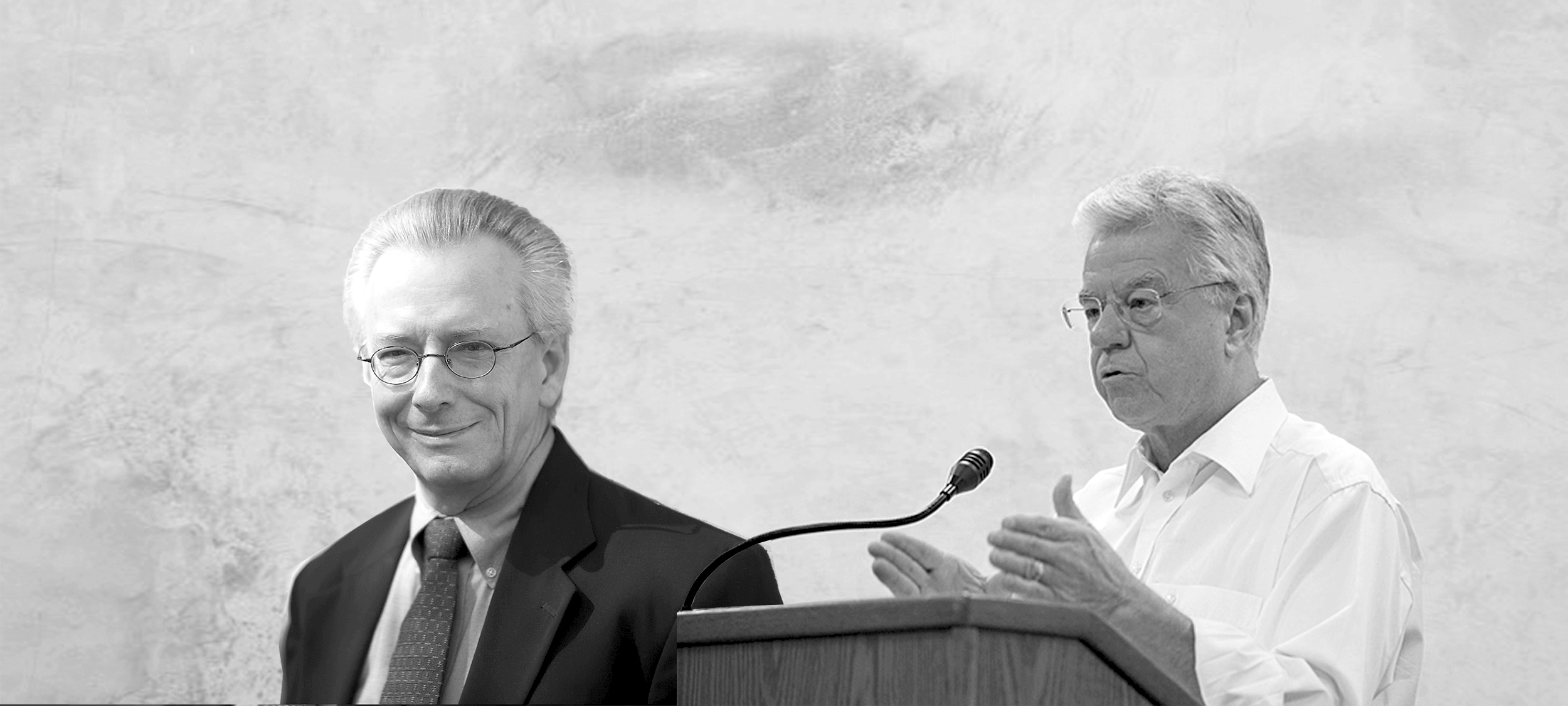
Big Thinkers: Thomas Beauchamp & James Childress
Big thinkerHealth + WellbeingPolitics + Human Rights
BY The Ethics Centre 1 DEC 2017
Thomas L Beauchamp (1939—present) and James F Childress (1940—present) are American philosophers, best known for their work in medical ethics. Their book Principles of Biomedical Ethics was first published in 1985, where it quickly became a must read for medical students, researchers, and academics.
Written in the wake of some horrific biomedical experiments – most notably the Tuskegee Syphilis Study, where hundreds of rural black men, their partners, and subsequent children were infected or died from treatable syphilis – Principles of Biomedical Ethics aimed to identify healthcare’s “common morality”. These are its four principles:
- Respect for autonomy
- Beneficence
- Non-maleficence
- Justice
These principles are often in tension with one another, but all healthcare workers and researchers need to factor each into their reflections on what to do in a situation.
Respect for autonomy
Philosophers usually talk about autonomy as a fact of human existence. We are responsible for what we do and ultimately any action we take is the product of our own choice. Recognising this basic freedom at the heart of humanity is a starting point for Beauchamp and Childress.
By itself, the idea human beings are free and in control of themselves isn’t especially interesting. But in a healthcare setting, where patients are often vulnerable and surrounded by experts, it is easy for a patient’s autonomous decision to be disrespected.
Beauchamp and Childress were writing at a time when the expertise of doctors meant they often took extreme measures in doing what they had decided was in the best interests of their patient. They adopted a paternalistic approach, treating their patients like uninformed children rather than autonomous, capable adults. This went as far as performing involuntary sterilisations. In one widely discussed court case in bioethics, Madrigal v Quillian, ten Latina women in the US successfully sued after doctors performed hysterectomies on them without their informed consent.
Legally speaking, the women in Madrigal v Quillian had provided consent. However, Beauchamp and Childress explain clearly why the kind of consent they provided isn’t adequate. The women – who spoke Spanish as a first language – were all being given emergency caesareans. They were asked to sign consent forms written in English which empowered doctors to do what they deemed medically necessary.
In doing so, they weren’t being given the ability to exercise their autonomy. The consent they provided was essentially meaningless.
To address this issue, Beauchamp and Childress encourage us to think about autonomy as creating both ‘negative’ and ‘positive’ duties. The negative duty influences what we must not do: “autonomous actions should not be subject to controlling constraints by others”, they write. But positively, autonomy also requires “respectful treatment in disclosing information” so people can make their own decisions.
Respecting autonomy isn’t just about waiting for someone to give you the OK. It’s about empowering their decision making so you’re confident they’re as free as possible under the circumstances.
Nonmaleficence: ‘first do no harm’
The origins of medical ethics lie in the Hippocratic Oath, which although it includes a lot of different ideas, is often condensed to ‘first do no harm’. This principle, which captures what Beauchamp and Childress mean by non-maleficence, seems sensible on one level and almost impossible to do in practice on another.
Medicine routinely involves doing things most people would consider harmful. Surgeons cut people open, doctors write prescriptions for medicines with a range of side effects, researchers give sick people experimental drugs – the list goes on. If the first thing you did in medicine was to do no harm, it’s hard to see what you might do second.
This is clearly too broad a definition of harm to be useful. Instead, Beauchamp and Childress provide some helpful nuance, suggesting in practice, ‘first do no harm’ means avoiding anything which is unnecessarily or unjustifiably harmful. All medicine has some risk. The relevant question is whether the level of harm is proportionate to the good it might achieve and whether there are other procedures that might achieve the same result without causing as much harm.
Beneficence: do as much good as you can
Some people have suggested Beauchamp and Childress’s four principles are three principles. They suggest beneficence and non-maleficence are two sides of the same coin.
Beneficence refers to acts of kindness, charity and altruism. A beneficent person does more than the bare minimum. In a medical context, this means not only ensuring you don’t treat a patient badly but ensuring you treat them well.
The applications of beneficence in healthcare are wide reaching. On an individual level, beneficence will require doctors to be compassionate, empathetic and sensitive in their ‘bedside manner’. On a larger level, beneficence can determine how a national health system approaches a problem like organ donation – making it an ‘opt out’ instead of ‘opt in’ system.
The principle of beneficence can often clash with the principle of autonomy. If a patient hasn’t consented to a procedure which could be in their best interests, what should a doctor do?
Beauchamp and Childress think autonomy can only be violated in the most extreme circumstances: when there is risk of serious and preventable harm, the benefits of a procedure outweigh the risks and the path of action empowers autonomy as much as possible whilst still administering treatment.
However, given the administration of medical procedures without consent can result in legal charges of assault or battery in Australia, there is clearly still debate around how to best balance these two principles.
Justice: distribute health resources fairly
Healthcare often operates with limited resources. As much as we would like to treat everyone, sometimes there aren’t enough beds, doctors, nurses or medications to go around. Justice is the principle that helps us determine who gets priority in these cases.
However, rather than providing their own theory, Beauchamp and Childress pointed out the various different philosophical theories of justice in circulation. They observe how resources are distributed will depend on which theory of justice a society subscribes to.
For example, a consequentialist approach to justice will distribute resources in the way that generates the best outcomes or most happiness. This might mean leaving an elderly patient with no dependents to die in order to save a parent with young children.
By contrast, they suggest someone like John Rawls would want the access to health resources to be allocated according to principles every person could agree to. This might suggest we allocate resources on the basis of who needs treatment the most, which is the way paramedics and emergency workers think when performing triage.
Beauchamp and Childress’s treatment of justice highlights one of the major criticisms of their work: it isn’t precise enough to help people decide what to do. If somebody wants to work out how to distribute resources, they might not want to be shown several theories to choose between. They want to be given a framework for answering the question. Of course when it comes to life and death decisions, there are no easy answers.
Ethics in your inbox.
Get the latest inspiration, intelligence, events & more.
By signing up you agree to our privacy policy
You might be interested in…
Big thinker
Politics + Human Rights, Relationships
Big Thinker: Eleanor Roosevelt
Big thinker
Health + Wellbeing, Relationships
Big Thinker: Temple Grandin
Opinion + Analysis
Health + Wellbeing, Relationships
Academia’s wicked problem
Opinion + Analysis
Politics + Human Rights, Relationships
Do Australia’s adoption policies act in the best interests of children?
BY The Ethics Centre
The Ethics Centre is a not-for-profit organisation developing innovative programs, services and experiences, designed to bring ethics to the centre of professional and personal life.
Ethics Explainer: Tolerance

For some people, the value of tolerance is simply the opposite of intolerance. But to think of tolerance in simple binary terms limits our understanding of important aspects of the concept.
We gain greater insight if we consider tolerance as the midpoint on a spectrum ranging between prohibition at one end to acceptance at the other:
Prohibition ————— Tolerance ————— Acceptance
The Ancient Greek philosopher Aristotle called this middle point of the spectrum, the golden mean. Approaching tolerance this way, makes it what philosophers call a virtue – the characteristic between two vices.
For example, Aristotle places the virtue of courage at the midpoint (or golden mean) between cowardice and recklessness. So, a courageous person has a proper appreciation of the danger to be faced but stands steadfast and resolute all the same.
Cowardice ————— Courage ————— Recklessness
Although Aristotle’s doctrine of the golden mean can help us understand tolerance, quite a bit more needs to be said. Some things deserve to be rejected and prohibited. And some things ought to be accepted.
We should neither accept or tolerate behaviour that denies the intrinsic dignity of people – for example, the defiling of synagogues by anti-Semites. Instead, we should have a general acceptance and respect for everyone’s intrinsic dignity. People should neither be rejected nor merely tolerated.
Unacceptance ≠ Prohibition
However, there are some things you might reasonably not accept, yet not want to prohibit. This is typically the case when you encounter an idea, custom or practice that is either unfamiliar or at odds with your own convictions about what makes for a good life.
For example, a vegetarian might be convinced it is wrong to eat animals. Such a person may never accept the practice as part of their own life. However, they may not want to stop others eating meat. Instead, they will tolerate other people’s consumption of animals.
This reveals an essential aspect of tolerance. Toleration is always a response to something that is disapproved of – but not to such a degree as to justify prohibition. Tolerance is, by definition, a mark of disapproval.
And so some people seek from society something more than ‘mere tolerance’. Instead, they look for acceptance.
Tolerance to acceptance
The word ‘acceptance’ rang out loud when it was revealed a majority of Australian voters answered yes to the same sex marriage postal survey in 2017. For gay and lesbian couples, the result is evidence of wide acceptance of their equality as citizens.
Individuals and communities are not only entitled to think about what should be accepted, tolerated or prohibited. We can also be obliged to consider these things.
Without wanting to confuse ethical with legal obligations, this is the difficult task of parliaments. To continue with the same sex marriage example in Australia, they were obliged to consider what behaviours should be accepted, tolerated, or prohibited in terms of wedding services and religious freedoms.
The ethics of tolerance
Ethics calls upon people to examine their lives – including the quality of their reasons when forming judgements. An ethical life is one that goes beyond unthinking custom and practice. This is why judgements about what is to be accepted, tolerated or prohibited need to be made free from the distorting effects of prejudice. Beliefs, customs and institutions should be evaluated for what they actually are – and not on the basis of assumptions about people or the world. The quality of our judgment matters.
There can be sincere disagreement among people of good will. Respect for persons – and the general acceptance this requires – can sit alongside ‘mere’ tolerance of each other’s foibles.
And that may be the best we should hope for.
Ethics in your inbox.
Get the latest inspiration, intelligence, events & more.
By signing up you agree to our privacy policy
You might be interested in…
Opinion + Analysis
Health + Wellbeing, Relationships, Science + Technology
Periods and vaccines: Teaching women to listen to their bodies
Big thinker
Climate + Environment, Relationships
Big Thinker: Ralph Waldo Emerson
Opinion + Analysis
Health + Wellbeing, Relationships
Academia’s wicked problem
Opinion + Analysis
Relationships
Ethical dilemma: how important is the truth?
BY The Ethics Centre
The Ethics Centre is a not-for-profit organisation developing innovative programs, services and experiences, designed to bring ethics to the centre of professional and personal life.
The ethics of smacking children

The ethics of smacking children
Opinion + AnalysisHealth + WellbeingRelationships
BY Matthew Beard The Ethics Centre 20 JUL 2017
Every generation likes to reflect on the way they were disciplined. They’re like old war stories, told with the fondness that comes with time and age.
I do the same. I was smacked as a child. For a time, I was convinced my backside was made of something other than flesh, such was its power to shatter wooden spoons. Weirdly, it’s something of a point of pride these days.
When it comes to smacking, it’s not just nostalgic to reminisce like this. It shapes our thoughts about whether smacking is ethical or not. “I was smacked and I turned out fine, so it must be OK.”
But that’s bad logic. The argument is a logical fallacy called “survivorship bias”.
Survivorship bias happens when we focus on those who made it through a difficult process without considering those who didn’t. The logic of “I was smacked and turned out OK” is the same as “I was tortured and I turned out OK”, but the fact you survived it doesn’t make it ethical.
When thinking about smacking, we need some better arguments. Here are a few things to consider.
Smacking is a show of force
With the exception of the grumpy nun from The Blues Brothers known as The Penguin, smacking only works on children who are too small to defend themselves.
Acknowledging this power imbalance changes how some people feel about the act of smacking. Philosopher and parent Damon Young writes, “deliberately striking [kids], whether coolly or in a rage, takes advantage of their weakness”.
Young thinks this is a question of character, writing “I don’t want to be the kind of man who hurts a smaller, weaker person”. Do you want to be the kind of parent who relies on physical power to command discipline, respect or obedience from your child?
Political philosopher Niccolo Macchiavelli said it was “much safer to be feared than loved when one must be dispensed with”. He thought fear was the most effective way to prevent people from betraying you because it creates “a dread of punishment which never fails”.
But Machiavelli had despotic political leaders in mind, not parents.
Effectiveness and ethics aren’t the same
Let’s go back to Macchiavelli for a second. He wasn’t interested in how to rule ethically, he wanted to know how to rule effectively. Sometimes it’s tempting to approach parenting the same way.
‘What’s the best way to get my child to sleep?’ ‘How can I stop him from biting me?’ When we’re bleary-eyed and desperately Googling for answers at three in the morning, we’re looking for whatever will get us the result we want. The means are less important to us than the ends.
Desperation doesn’t make for good ethical judgement. Telling your bub bedtime stories about the monsters who eat naughty children until they’re sobbing in fear might be an effective way to get them to toe the line but it’s not going to win you any parenting awards.
Parenting expert Barbara Coloroso suggests a slight modification to the ‘if it works, do it’ mentality. She suggests, “if it works and leaves a child’s and my own dignity intact, do it”. This is a crucial distinction – the dignity of both children and parents serves as a line in the sand against brute efficiency.
This doesn’t necessarily rule smacking out. Pope Francis himself thought smacking could be a dignified way of teaching kids about ethics.
Talking about a dad who sometimes smacks his kids – but never in the face – the Pope said, “How beautiful. He knows the sense of dignity. He has to punish them but does it justly and moves on.”
As a counter example, it’s worth wondering how dignified the Pope would feel being bent over someone’s knee.
What are you really communicating?
Some people defend smacking as a way of communicating with a child when words won’t do the job. They suggest that in the midst of a meltdown, it’s hard to reason with a child, but if a quick ‘love tap’ gets them to listen to you, it might allow for a constructive conversation.
These folks might enjoy reading Hannah Arendt. The 20th century philosopher thought violence was an effective form of communication to help moderate, reasonable voices to be heard. However, Arendt’s support for violence comes with a warning: the use of violence risks its being legitimised as a form of communication in a community (or family). Once violence becomes the talk of the town, everyone can be tempted to start speaking it.
Arendt concluded, “the practice of violence, like all action, changes the world, but the most probable change is a more violent world”.
If the same is true of families, it might be worth thinking twice before talking with the hand.
Ethics in your inbox.
Get the latest inspiration, intelligence, events & more.
By signing up you agree to our privacy policy
You might be interested in…
Opinion + Analysis
Climate + Environment, Politics + Human Rights, Relationships
This is what comes after climate grief
Opinion + Analysis
Health + Wellbeing
Your kid’s favourite ethics podcast drops a new season to start 2021 right
Opinion + Analysis
Relationships
Are there limits to forgiveness?
Opinion + Analysis
Business + Leadership, Health + Wellbeing, Relationships
Moving on from the pandemic means letting go
BY Matthew Beard
Matt is a moral philosopher with a background in applied and military ethics. In 2016, Matt won the Australasian Association of Philosophy prize for media engagement. Formerly a fellow at The Ethics Centre, Matt is currently host on ABC’s Short & Curly podcast and the Vincent Fairfax Fellowship Program Director.
BY The Ethics Centre
The Ethics Centre is a not-for-profit organisation developing innovative programs, services and experiences, designed to bring ethics to the centre of professional and personal life.
Office flings and firings

Office flings and firings
Opinion + AnalysisBusiness + LeadershipHealth + WellbeingRelationships
BY Dennis Gentilin The Ethics Centre 20 JUL 2017
If you heard the phrase “cheaters never prosper” talked about at AFL headquarters, you’d assume they were talking about performance enhancing drugs, salary cap breaches or breaking the rules to win a game.
This week, as AFL CEO Gillon McLachlan announced the resignations of two senior officials, Richard Simkiss and Simon Lethlean, after they admitted to adulterous affairs with junior staff, the phrase took on a whole new meaning.
The reaction to McLachlan’s decision has been mixed. Some have applauded the move as a strong defence of the AFL’s culture and values. Others have suggested the AFL has gone too far. Writing in The Australian Financial Review, Josh Bornstein suggested office affairs that don’t involve “harassment or stalking or bullying” should “not be grounds for loss of employment”.
Particulars of the AFL case aside, this view is misguided. It conflates ethics and the law and demonstrates a lack of appreciation for the important role values and principles play in corporate governance. Just because something is legal doesn’t mean it’s ethical.
Yes, the law should play a role in guiding an organisation when developing an ethical framework. But it is far from sufficient. Arguably, the best test of an organisation’s ethics will arise when they’re operating in areas not covered by the law.
When a power imbalance could potentially cause harm to the more vulnerable party, then we have good reason to question that conduct.
With that said, what should we make of the AFL’s decision? When announcing the resignation of the two senior officials, McLachlan spoke to his organisation’s values. He stated that he would like to lead “a professional organisation based on integrity, respect, care for each other, and responsibility”.
An organisation’s values are affirmed by the actions, choices, and decisions that are made and condoned by its people, especially its most senior leaders. This also was not lost on McLachlan. “I expect that executives are role models and set a standard of behaviour for the rest of the organisation,” he said. “They are judged, as they should be, to a higher standard”.
The response by the Seven West Media board to revelations that their CEO Tim Worner had an adulterous affair with executive assistant Amber Harrison was a little more benign. They engaged a private law firm to undertake an independent investigation into a variety of allegations made by Harrison, including the inappropriate use of company funds and illicit drug use by Worner.
Although the findings of the investigation were not made public, the board concluded there was no evidence supporting the claims of wrongdoing by Worner. Furthermore, they stated he had been disciplined over his “personal and consensual” relationship with Harrison, which it also said was “inappropriate due to his senior position”.
So what are we to make of these seemingly contrasting responses? Should we cast judgement and declare that one organisation is more virtuous than the other?
We must be careful not to instantly assume that an individual who has become involved in an extra-marital affair is less committed to the organisation or its values. Infidelity is not a simple question of character deficiency.
It should be acknowledged that although the two organisations handled the incidents differently, neither condoned the conduct of the leaders involved. When judging the individuals and the organisation’s responses, commentators and the public appear to point to two factors.
The first is the power asymmetry between the people in each of the affairs. This is not unique. Power asymmetries in organisations are inescapable and almost all leaders have at some stage used their power to gain advantage, even if they did so unwittingly. However, when a power imbalance could potentially cause harm to the more vulnerable party then we have good reason to question that conduct.
The second factor inviting people’s judgement is the fact the affairs were adulterous. Understandably, infidelity arouses a range of moral responses. But we must be careful not to instantly assume that an individual who has become involved in an extra-marital affair is less committed to the organisation or its values. Infidelity is not a simple question of character deficiency.
Stories are powerful. After notable incidents like these, they become folklore within organisations.
Whenever a senior executive becomes involved in a regrettable or unsavoury incident similar to these, an employer has no choice but to respond. How they do so is a defining moment for the organisation. Their response (or lack thereof) reveals to us what the organisation really values and how committed it is to those values.
However, judging the appropriateness of the response is difficult. Perhaps the best measure is one we don’t yet have access. Namely, the stories that these events inspire within the organisation.
Stories are powerful. After notable incidents like these, they become folklore within organisations. If they affirm and are aligned to stated values and principles, they can strengthen the organisation’s ethical foundations. If not, people can quickly become cynical, compromising the organisation’s character.
When we look past the salacious gossip surrounding office romances, this is arguably the most important thing to take from these unfortunate incidents. For the sake of the boards at the AFL and Seven West Media, I hope that the stories being told within their organisations are reflective of the values they extol.
Ethics in your inbox.
Get the latest inspiration, intelligence, events & more.
By signing up you agree to our privacy policy
You might be interested in…
Opinion + Analysis
Relationships
If you condemn homosexuals, are you betraying Jesus?
Big thinker
Health + Wellbeing, Politics + Human Rights
Big Thinkers: Thomas Beauchamp & James Childress
Opinion + Analysis
Health + Wellbeing, Relationships
Want to live more ethically? Try these life hacks
Opinion + Analysis
Health + Wellbeing, Politics + Human Rights, Relationships
People with dementia need to be heard – not bound and drugged
BY Dennis Gentilin
Dennis Gentilin is an Adjunct Fellow at Macquarie University and currently works in Deloitte’s Risk Advisory practice.
BY The Ethics Centre
The Ethics Centre is a not-for-profit organisation developing innovative programs, services and experiences, designed to bring ethics to the centre of professional and personal life.
4 questions for an ethicist

4 questions for an ethicist
Opinion + AnalysisHealth + Wellbeing
BY John Neil The Ethics Centre 16 JUN 2017
Though not as common as GPs, therapists, or personal trainers, ethicists still have a lot to say about how to live a good life. Here are four of the common questions they get asked.
1. There are so many conflicting versions of ethics out there – legal, social, religious. Which should I listen to?
With all these voices vying for our attention it can be difficult to know who to listen to. An important starting point with ethics is to untangle the nature of these conflicting voices to better be able to hear our own.
Our beliefs and values are influenced by our upbringing, community, professions, and for many people, their faith. It’s useful to think of these voices – social customs, the law and religion – as ‘morality’ rather than ethics.
Morality is a set of deeply held and widely shared norms and rules within a community. Like ethics, morality provides us with opinions, rules, laws, and principles to guide our choices and actions. But unlike ethics, morality can be followed unthinkingly and without asking questions.
Ethics is about reflecting on who we are, what we value, and how we want to live in a world where many others may not share the same values and principles as us.
What makes ethics both timely and timeless is it arises in any moment when we find ourselves faced with the question of what is right. This question is both a philosophical and practical one. Philosophically, it involves exploring the nature of concepts like truth, wisdom, and belief and providing a justification for right and good actions.
On a practical level, it is a question we find ourselves asking every day. Whether it’s the big ethical issues – abortion, capital punishment, immigration – or everyday ethical questions – whether to tell the truth to a friend when it may hurt their feelings, or being asked to provide a reference for a close colleague who isn’t qualified for the job – ethical questions are inescapable parts of being human.
Ethics does not rely on history, tradition, religion, or the law to solely to define for us what is good or right. Ethics is about reflecting on who we are, what we care about, and how we want to live in a world where many others may not share the same values and principles as us.
2. Isn’t ethics just a matter of opinion? If there’s no way to tell who is right and who is wrong, isn’t my opinion as good as anyone’s?
In the 1990s Mike Godwin famously argued when it comes to online arguments, the longer and more heated a debate gets, the more likely somebody will bring up the Nazis in an attempt to close it down.
When it comes to discussions of ethics there is an inverse law which anyone who has taught an ethics class will have experienced. The shorter the conversation about ethics, the greater the likelihood somebody will claim, “Ethics is just personal opinion”.
When the stakes are high, it becomes abundantly clear that we want to hold others to a similar standard of what we think matters.
This view implies ethics is subjective. What follows from this is there are no better or worse opinions on ethics.
However, it would be hard to find someone say in response to being robbed, “The thief had their own values and I have mine, they are entitled to their view, so I won’t pursue this further”. When the stakes are high, it becomes abundantly clear we want to hold others to a similar standard of what we think matters.
We will inevitably reach a point in any discussion of ethics where people will strongly express a fundamental moral belief – for example, it’s wrong to steal, to lie or to harm others. These opinions are the beginning of a common, rational basis for discussions about what we should or shouldn’t do.
And when those discussions become heated, let’s try and leave Hitler out of it.
3. I’m a good person, why do I need ethics?
Ethics helps good people become better people.
Being a good person doesn’t necessarily mean you will always know what’s right. Good people disagree with each other about what is right all the time. And good people often don’t know what to do in difficult situations, especially when these situations involve ethical dilemmas.
We all have the tendency to act unethically given the ‘right’ conditions. Fear, guilt, stress, and anxiety have been shown to be significant factors that prevent us from acting ethically.
Good people make bad choices. Despite the widespread view that bad things happen due to a small percentage of so called ‘evil people’ intentionally doing the wrong thing, the reality is that all of us can make poor decisions.
We all have the tendency to act unethically given the ‘right’ conditions. Fear, guilt, stress and anxiety have been shown to be significant factors that prevent us acting ethically.
Food has been shown to directly influence the quality of decisions made by judges. Other studies have shown that even innocuous influences can have a disproportionate effect on our decisions. For example, smells affect the likelihood a person will help other people.
Ethics is not only about being aware of our values and principles. It is also about being alive to our limited view of the world and striving to expand our horizons by trying to better see the world as it really is.
4. People only do ethics when it makes them look good. Why would anyone put ethics above self-interest?
One argument often heard in philosophy and psychology is that everything we do, from the compassionate to the heroic, is ultimately done for our own benefit. When we boil it down, we only save lives, donate to charity or care for a friend because these things make us feel good or benefit us.
However, despite being a widely held view it is only half the story – and not even the most interesting part of the story. While human beings are undoubtedly self-interested there is a wealth of evidence that shows human beings are hard wired to care for others, including total strangers.
Research has shown the existence of ‘mirror neurons’ in our brains that naturally respond to other people’s feelings.
Ethics is rooted in this fundamental human capacity to be connected to others. It provides a rational foundation for this connection. This is the foundation of empathy. It’s an intrinsic part of what makes us human.
Ethics in your inbox.
Get the latest inspiration, intelligence, events & more.
By signing up you agree to our privacy policy
You might be interested in…
Opinion + Analysis
Health + Wellbeing
Being a little bit better can make a huge difference to our mental health
Opinion + Analysis
Health + Wellbeing, Relationships, Science + Technology
When do we dumb down smart tech?
Opinion + Analysis
Health + Wellbeing, Relationships
Should you celebrate Christmas if you’re not religious?
Big thinker
Health + Wellbeing, Relationships
Big Thinker: Shulamith Firestone
BY John Neil
As Director of Education and Innovation at The Ethics Centre, John collaborates closely with a talented team of specialists and subject matter experts to shape the tools, frameworks, and programs that drive our work forward. He brings a rich and varied background as a consultant, lecturer, and researcher, with expertise spanning ethics, cultural studies, sustainability, and innovation. This multidisciplinary perspective allows him to introduce fresh, thought-provoking approaches that energise and inspire our initiatives. John has partnered with some of Australia’s largest organisations across diverse industries, to place ethics at the heart of organisational life. His work focuses on education, cultural alignment, and leadership development to foster meaningful and lasting impact.
BY The Ethics Centre
The Ethics Centre is a not-for-profit organisation developing innovative programs, services and experiences, designed to bring ethics to the centre of professional and personal life.
Tough love makes welfare and drug dependency worse

Tough love makes welfare and drug dependency worse
Opinion + AnalysisHealth + Wellbeing
BY Nicole Lee The Ethics Centre 17 MAY 2017
“Look, if somebody has got an addiction to drugs and you love them, what do you want to do? You want them to get off it, don’t you?” Malcolm Turnbull said recently in defence of the Coalition’s new plan to conduct drug tests on welfare recipients. “This is a policy that is based on love”.
The policy warrants some analysis – starting with the methodology.
The government plans to conduct drug tests on 5000 welfare recipients in three undisclosed locations as a pilot program – with these locations selected by testing waste water. Just so we’re clear on this, they’ll be testing sewage water for the presence of drugs. So if, for example, Toorak registers a high reading for drugs, welfare recipients in that suburb may be nominated to participate in the pilot program.
It’s not clear whether the government plans to test the sewage pipes of every suburb of Australia, or just the ones with a lot of welfare recipients.
Once this messy, smelly, but undeniably fascinating work has been completed, the policy will operate on a “three strikes” approach. The first positive drug test will place welfare recipients on a cashless debit card that cannot be used for alcohol, gambling or cash withdrawals. A second strike gets you a referral to a doctor for treatment. After three strikes, your welfare payments are cancelled for a month.
Unfortunately, sanctions and punishment won’t help people manage their drug use. Love – even tough love – isn’t going to get us anywhere near a solution. Here’s why.
Drug use and drug dependence aren’t the same thing
Not everyone that takes drugs is dependent on them and not everyone needs treatment. All the drugs on the proposed testing list are used recreationally and the majority of people who use them are not dependent.
Only a relatively small proportion of current users – around 10% – are dependent on alcohol or other drugs. For example, very few people who use ecstasy ever become dependent on it. Only 1% of people seeking help from alcohol and other drug services name it as their primary drug of concern. Seventy percent of people who have used methamphetamine in the last year have used less than 12 times. Around 15 percent are dependent on it.
This means the government is potentially wasting large amounts of money drug testing and sanctioning people who only use occasionally.
It will do more harm than good
Whatever you believe about the morality of drug use, the reality is that just restricting income and expenditure will not stop people using drugs. It’s just not that simple. And it creates a number of potential unintended consequences.
Even if we assume that everyone who uses drugs needs treatment (which is not the case), you can’t just say “Stop it!” and hope that works. Dependence is a chronic and relapsing condition. Anybody who has been a regular smoker or has participated in Dry July probably has some experience of how hard it is to abstain from their drug of choice, even for a short time.
Even if it could stop people using, this proposal doesn’t address any of the broader social risk factors that maintain drug use and trigger relapse.
The idea that taking away money to buy drugs will magically stop people using them is a gross oversimplification of why people use drugs, what happens when they are dependent on them, and why they quit. Theft and other crime may increase as people denied payments find other ways to buy drugs.
Even if it could stop people using, this proposal doesn’t address any of the broader social-risk factors that maintain drug use and trigger relapse: mental health issues, disrupted connection with community, lack of employment and education, housing instability, and poverty.
Worse still, the policy may discourage people who are dependent on drugs from seeking help for fear of losing their benefits.
Drug testing doesn’t reduce drug use or its consequent harms. But what it can do is shift drug use to other (often more dangerous) drugs that are not part of the testing regime. People who use cannabis may switch to more dangerous synthetic cannabinoids and those using ecstasy or methamphetamine may switch to other more harmful stimulants.
It threatens civil liberties
In a workplace context, court rulings clearly indicate that drug testing is only justified on clear health and safety grounds. This is because there is a balance required with privacy and consent. Greg Barnes from the Australian Lawyers Alliance has already highlighted the potential conflict in gaining consent of a vulnerable individual under duress of sanctions.
The measure targets the most vulnerable, poorest, and youngest Australians, potentially further marginalising and stigmatising them. We know that when people feel stigmatised they are less likely to seek the help they need.
Punitive measures just don’t work. They reflect a deep lack of understanding about drug use, its effects and of what works to address drug-related problems.
It creates a “deserving” and “undeserving” dichotomy based on private moral judgements about whether it is right or wrong to use drugs.
It assumes, without evidence, that drug use is a major cause of welfare dependence and a barrier to finding work. Research from the US suggests neither is true.
We need evidence-based policy
It’s difficult to see what the government will achieve from this paternalistic measure. Politically, it may appease the far right’s “tough on drugs” rhetoric – but as a piece of policy, it is unlikely to achieve what it hopes to.
The experience from the US is that punitive measures just don’t work. They reflect a deep lack of understanding about drug use, its effects and of what works to address drug-related problems.
This is not going to reduce drug use or harms. It has the potential to increase crime, infringes on civil liberties and it is going to cost a lot of money that would be better spent in harm reduction and drug treatment.
If the government really wants to put this kind of money into reducing drug use among those on welfare, providing more money to the underfunded treatment sector would be a better place to start.
According to the Drug Policy Monitoring Program at UNSW, drug treatment is funded at less than half the amount the community needs. Yet for every dollar we put into treatment we save $7 in health and social costs. If we want to save money in the budget, it seems like a no-brainer.
Ethics in your inbox.
Get the latest inspiration, intelligence, events & more.
By signing up you agree to our privacy policy
You might be interested in…
Opinion + Analysis
Health + Wellbeing
Why leisure matters for a good life, according to Aristotle
Opinion + Analysis
Health + Wellbeing, Society + Culture
Alpha dogs and the toughness trap: How we can redefine modern masculinity
Opinion + Analysis
Health + Wellbeing, Science + Technology
Twitter made me do it!
Opinion + Analysis
Climate + Environment, Health + Wellbeing






















